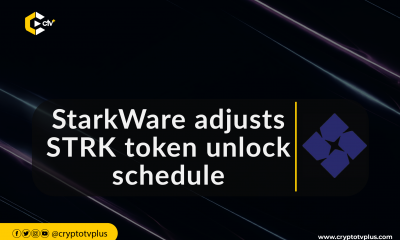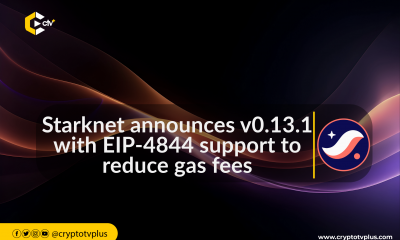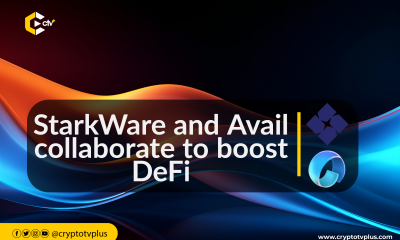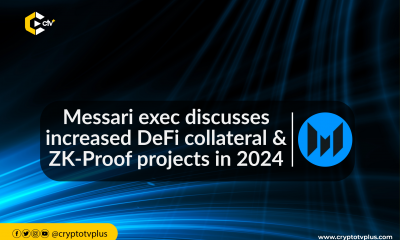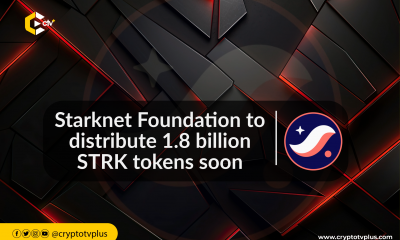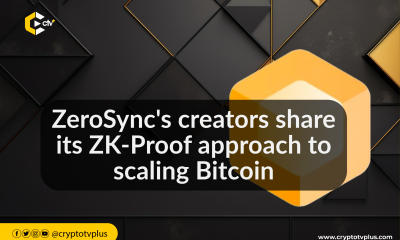Education
StarkNet – All you need to know
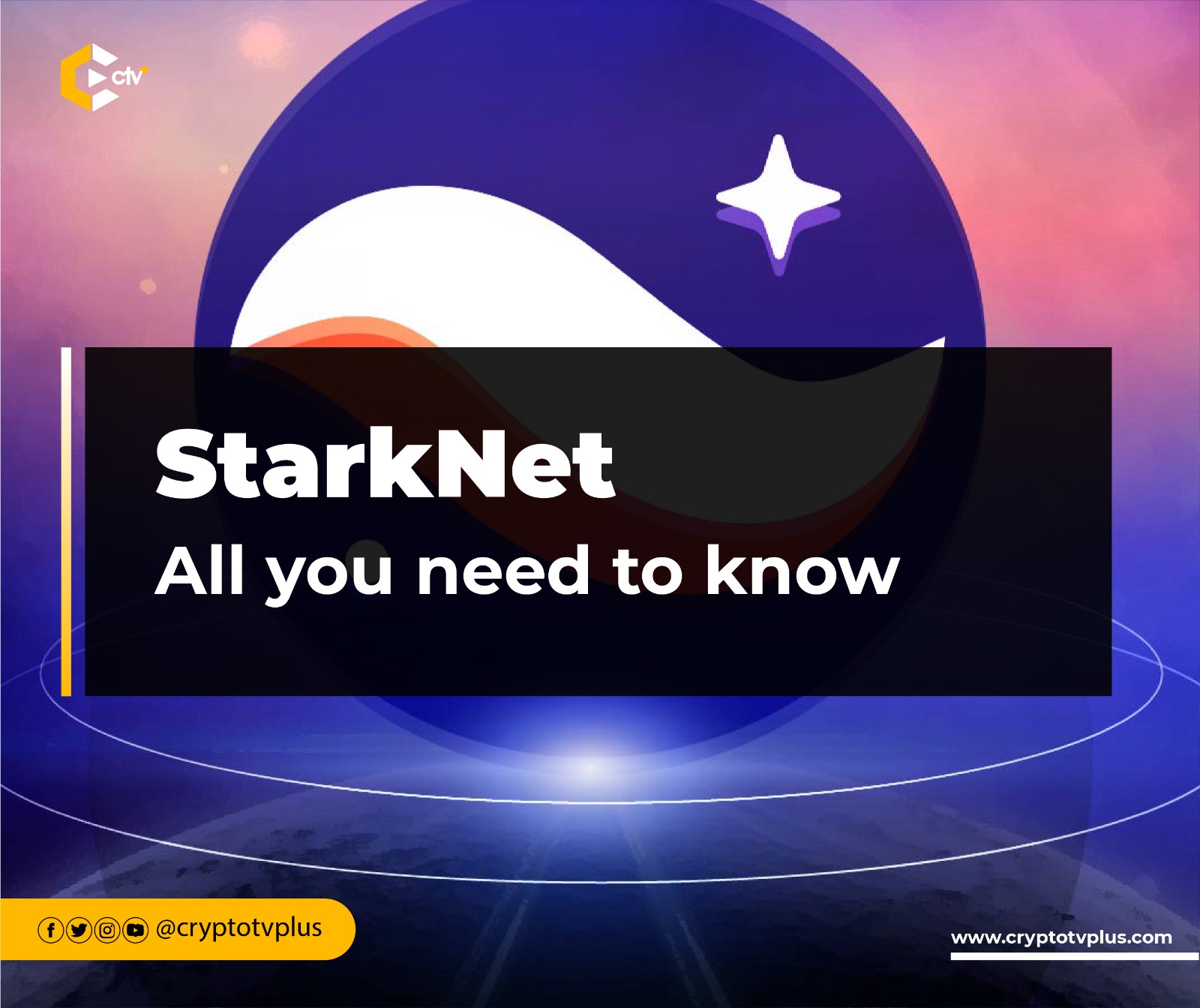
StarkNet is a layer-2 decentralized protocol for building and running high-throughput, secure, and affordable decentralized applications (dApps) on Ethereum without tampering with the core principles of Ethereum – decentralization, transparency, inclusivity, and security.
It’s a product of StarkWare, a blockchain technology company focused on scaling blockchains using zk-STARK technology. Starkware is also the parent organization of StarkEx, a protocol for exchanges.
Zero-knowledge rollup (ZK-rollup) is a scaling solution designed to increase transaction throughput and reduced fees in blockchains. It works by aggregating several transactions as one, which is then verified by a smart contract on the blockchain.
Zk-rollup also enhances the privacy of blockchains. While this technology is nascent, several blockchains such as Ethereum, Polygon, and Optimism have adopted it.
However, Validium roll-up, not Zk-rollup, is the technology implemented on StarkNet. StarkNet employs a unique type of roll-up referred to as Validium roll-up, which distinguishes itself from zero-knowledge proof roll-ups in its data availability approach.
Comparison between Validium roll-up and Zk-rollup
While Validium and zero-knowledge proofs are technologies designed to enhance privacy and scalability in blockchain systems, there are some differences between the two systems.
The Validium roll-up solution relies on a trusted operator to gather multiple transactions off-chain and then submit a single hash to the blockchain. The result is a reduction in the number of transactions that need to be processed on the blockchain, improving scalability. In addition, the process also conceals the details of individual transactions from the public, improving privacy. while this system improves blockchains, there is the risk of a central point of failure as the system relies on a trusted operator.
Contrarily, zero-knowledge proofs enable secret transactions without the necessity for a reliable intermediary. A zero-knowledge proof ensures privacy by validating a transaction without divulging any information about the transaction itself. This strategy, which is similar to Validium, can also increase scalability because fewer transactions need to be processed on the blockchain.
In summary, Validium uses a trusted operator to reduce the number of transactions processed on the blockchain and improve privacy, while zero-knowledge proofs allow for private transactions without the need for a trusted operator.
Components of Starknet
The following are the components of StarkNet:
- Execution Manager (EM): The EM manages the execution of smart contracts on StarkNet. It processes transactions and updates the state of the network simultaneously.
- Contract Registry: With the help of the Contract Registry, a smart contract, all smart contracts deployed on StarkNet are recorded.
- Verifier: The Verifier’s duty is to validate the authenticity of ZK proofs created by users. It ensures the accuracy of the proof and verifies that the inputs to the proof satisfy the conditions of the executed contract.
- Proof Verifier Factory: The Proof Verifier Factory generates new Verifiers when needed. It creates new Verifiers and manages their life cycles.
- ZK Operator: The ZK Operator is responsible for generating ZK proofs for transactions and sending them to the Execution Manager. It also manages the Merkle tree that is used to generate the proofs.
- Storage: StarkNet has a storage layer where smart contracts are stored and data are retrieved from. The storage layer is based on a Merkle tree and is optimized for efficient data access.
- Gateway: The Gateway is a bridge between Ethereum and StarkNet. It allows users to deposit and withdraw funds from StarkNet via Ethereum.
- Cairo programming language: StarkNet was developed with the Cairo programming language which is optimized for zk-STARKs and enables developers to write complex, secure smart contracts. With the help of Cairo’s framework, developers can test their contracts locally before deploying them to the StarkNet network.
The combination of these components leads to efficient scalability and economical transaction processing on StarkNet. Consequently, users can perform various tasks such as transmitting and receiving transactions, batch processing, proposing new blocks as a sequencer, generating proofs for the validity of new blocks, and effortlessly creating and deploying smart contracts on StarkNet.
Tokenomics of Starknet
The StarkNet token is a native cryptocurrency that governs the StarkNet ecosystem. It plays the role of governance, as a payment system for transaction fees on StarkNet, and participation in StarkNet’s consensus mechanism.
According to StarkNet, the ERC token is designed to reward developers for their work in the ecosystem. Also, the initial allocation of the tokens to shareholders, employees, and independent software developers in 2022 is locked for a period of four years and will be gradually released after one year.
These locked tokens can be used for voting and staking but cannot be traded or transferred for now. The StarkNet foundation has 50.1% of all existing tokens and they are not locked like the previous one.
Roadmap for StarkNet
StarkNet was first announced in January 2021 by StarkWare. Then from Q2 to Q4 of 2021, StarkNet Planets Alpha Testnet, StarkNet Alpha 2, StarkNet Alpha 4, and StarkNet Alpha mainnet, were released.
In Q1 2022, StarkNet released the Alpha and Devnet, started full development of Cairo language (Full developer tools and libraries); projects such as Aave v3, Games (Lootverse of Realms, Eykar, Bitmapbox, Ogame, Etherquest, DopeWars, Influence, and Game of Blocks), NFTs (Mallows, NFTflow, Briqs, Lords, and Oasis); Launchpad (Zkpad); DeFi (ZkLend, Alpha Road Finance, Magnety, Starkswap, Brine Finance, Curve Zero, xBank, Orbiter Finance, Zigzag, Jediswap, Serity, and Yagi Finance); and Metaverse (Phi) were being developed on StarkNet.
Here are the highlights of developments that occurred in StarkNet between April and August 2022; NFT fractionalization initiated; Starkware announced $100m series D fundraising; Starkware released a decentralization proposal, tokens plan, and foundation plan; Cairo 1.0 was launched; StarkNet Regenesis plan was released; and StarkGate, the first bridge on StarkNet was released.
Several projects such as ZKX (perpetual swaps protocol), Zigzag exchange (Orderbook), PlayOasis (NFT marketplace for 3D NFT viewer), Articium (Community NFTs), MintsquareNFT (Multimedia NFTs for view/mint), Starkswap, LordofaFew (Resource Marketplace with assets from multiple projects/NFT collections), Attunedao (building Starkpass, an NFT that tracks on-chain data on Starknet), Starkgazer (yields aggregator), Imperium Wars, and more joined the StarkNet ecosystem.
It also entered into partnerships with Web3Auth (onboard users), Immutable X for cross-rollup Liquidity layer, Maker, and Layerswap to onboard new users and encourage interoperability.
After that, there has been a further partnership with Chainlink; and Braavos, a Web3 security platform; the release of Cairo 1.0, Alpha 3; Papyrus, a Rust implementation of StarkNet full node.
Team and Investors behind StarkNet
A seven-member board will govern StarkNet and its development. The board members are Andrew McLaughlin, Eli Ben-Sasson, Eric Wall, Heather Meeker, Shubhangi Saraf, Tomasz Staczak, and Uri Kolodny. Andrew McLaughlin is a former Deputy Chief Technology Officer of the United States and former Vice President and Chief Policy Officer of ICANN. Eli Ben-Sasson is a Mathematician and computer scientist and StarkWare President and Co-founder. Eric Wall is a Blockchain thought leader and whistleblower.
Heather Meeker is an award-winning lawyer and legal advisor to StarkWare. Shubhangi Saraf is a Mathematician and computer scientist and StarkWare Scientific Advisor. Tomasz Staczak is a Blockchain developer and StarkWare CEO and Co-founder. Uri Kolodny is an Entrepreneur and StarkWare CEO and Co-founder. The board of StarkWare is composed of Andrew, Heather, Tomasz, Uri, and Eli.
Tomasz has worked on the development of the core components of Ethereum and StarkNet, Eli was a Founding Scientist at Zcash, and Shubhangi and Eli have expertise in computer science and math.
StarkNet has raised $165 million and is valued at $2 billion, with VC firms such as ConsenSys, Dragonfly Capital, Paradigm, Alameda Research, and Three Arrows Capital investing in the protocol.
Read also;



